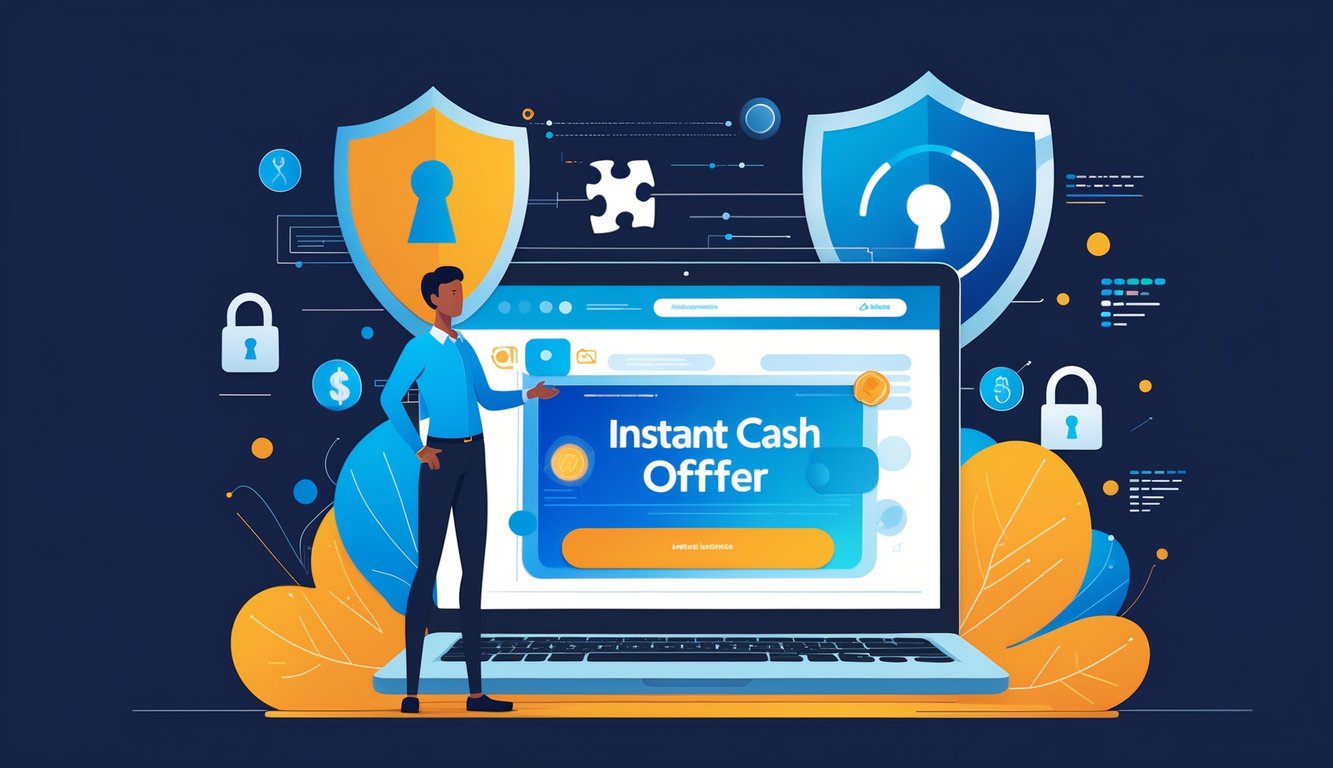
So I clicked “Get Instant Cash Offer” on, what, three sites yesterday? Dumped my old watch, a Roomba that probably still had cat hair jammed in it, even a kitchen mixer. Not a single site warned me what happens if the buyer just—poof—disappears. Everyone acts like these instant-buyback places are safe for sellers, but the second something goes sideways, you’re on your own. You’d think at least one of them would say, “Hey, if the money doesn’t show up, tough luck,” but nope. Nothing. It’s all fine print and wishful thinking until you’re the one getting burned.
Red flags everywhere in those terms and conditions. I mean, I skimmed—who actually reads all that? Even Martin Lewis, the money guy, keeps saying, “Cover your back or you’re toast.” Angela, my friend, lost out on her camera sale—company said “fraudulent serial number,” sent it back with a giant scratch, customer support didn’t even bother replying. Should I have checked Trustpilot? Probably. But honestly, who’s got time to memorize every security step just to sell a blender?
Here’s what drives me nuts: the more “convenient” these instant offers get, the less you’re actually protected. Real seller protection just evaporates. Buyers get all the focus—sellers, we’re out here floating. Is instant cash actually worth the stress, or am I just the only one paranoid enough to refresh my payout screen while heating up leftover soup?
What Are Instant Cash Offers Online Now?
You ever scroll through car ads or watch someone fumble a million clicks? Suddenly, there’s this thing: you type in your details, hit “submit,” and—bam—a number pops up. No waiting, no haggling, no endless messages from people offering you half your asking price. It’s fast. Maybe too fast. And not nearly as solid as they want you to think. These sites love to brag, but they skip the messy parts.
Definition and How They Work
I can’t stand when a form spits out a price before I even finish typing. But that’s what happens. With instant cash offers, you fill in the basics—make, model, condition, sometimes mileage (good luck if your car’s over 80k)—and an algorithm throws a number at you. It’s not even a real offer, more like, “We’ll maybe pay this if we feel like it.”
People think it’s cash-in-hand, but it’s usually just a maybe. These companies use some automated valuation thing, grab data from auctions, and probably have Edmunds and Kelley Blue Book running in the background. Sellers get this false sense of “offer valid for 7 days!”—unless they knock it down after the inspection or claim your door ding is “structural.” And why do these forms never ask if your air freshener is giving off chemical warfare vibes? Mine is, but nobody cares.
Types of Instant Cash Offers Platforms
It’s not just Carvana or Kelley. Dealerships have their own instant-offer stuff, and fintech startups promise “bank transfer in hours,” but always with some annoying fee at the end. I tried three this summer—two said “instant,” both called me to “confirm details” (translation: they didn’t trust my odometer photo).
There’s direct-buy companies like CarMax, Vroom, then trade-in marketplaces that shop your VIN, and aggregators like Peddle or Wheelzy who just play middleman. Even the peer-to-peer apps pushing “cash-in-an-hour” still want to see the car in person. I’d put a chart here, but it’d be outdated in a week. Just know: fees, wait times, seriousness—all over the place.
Who Commonly Uses Them
Why is it always people in a panic? Never someone just bored on a Sunday. It’s folks with bills due, moving cross-country, or suddenly needing a medical payment. I know business owners who use their old truck as a quick loan, hoping for a payout before payroll.
Every survey—CarGurus, Edmunds, whatever—shows millennials and Gen Z using these more than anyone else. Convenience wins over the drama of private sales. Sometimes it’s people dealing with divorce or estates, just wanting less paperwork. Nobody wants scams, but when you need cash by Friday, “instant” suddenly sounds pretty good.
The Key Seller Protection Missing From Instant Cash Offers

You’d think selling stuff online for instant cash would be less of a headache. Nope. They skip the one thing sellers actually need: fraud protection that isn’t just a shiny badge. So many loopholes. “Guarantee” badges? Please. When the protection’s missing, scammers just stroll in, and sellers get burned because nobody’s closing those gaps.
Understanding Vital Seller Safeguards
Picture this: you’re offloading an old iPhone SE—my cousin actually lost one to a “verified” buyer on a big app. The main thing you want? Escrow. That’s where a third party holds the money until both sides are cool. The Consumer Financial Protection Bureau (CFPB) keeps saying, “Use secure platforms—like PayPal Goods & Services, not Venmo—unless you want to get robbed.”
Most sellers don’t get any real dispute process, let alone someone who can actually help if things go bad. I saw CFPB data (not just some blog post) showing over half of online scam reports in 2023 happened on sites with no escrow and no contract. But hey, there’s always a “money-back” promise in tiny font. Do these companies even sell things themselves? I doubt it.
Platforms brag about “risk management,” but then in the fine print, you’re supposed to ID the pickup driver with a QR code. What if your phone dies? Guess you’re out of luck. Here’s a table, because why not:
| Protection Type | Required for Sellers? | Commonly Provided by Cash Offer Sites? |
|---|---|---|
| Escrow | Yes | Rare |
| Seller Dispute Help | Yes | Sometimes (Usually FAQ-Only) |
| Buyer Verification | Yes | Weak |
